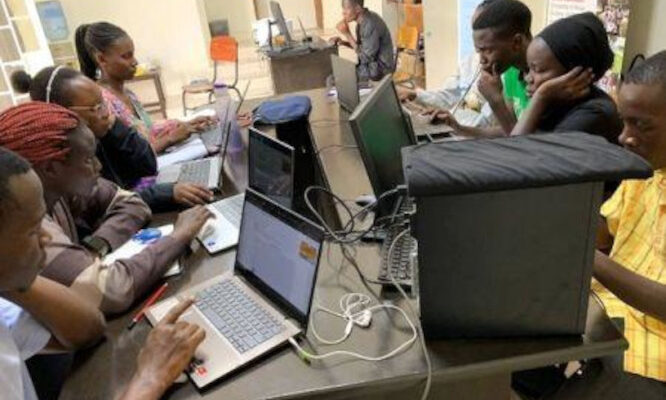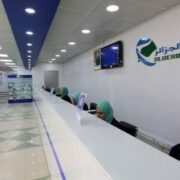
(Ecofin Agency) – African startups are unveiling the transformative potential of artificial intelligence (AI) across sectors like healthcare, agriculture, and finance. However, broad adoption of this disruptive technology requires public policies.
While some African countries lead in AI readiness, the overall integration of AI faces significant obstacles such as digital infrastructure deficits, underinvestment in research and development (R&D), and a shortage of specialized training programs. This is a finding of a report released on May 16 by the Moroccan think tank Policy Center for the New South.
Titled “Artificial Intelligence in Africa: Challenges and Opportunities,” the report highlights AI’s potential to reshape the global economic landscape. AI, defined by its ability to mimic human intelligence through algorithms and computing power, promises to revolutionize industries, enhance operational efficiency, and create new growth avenues. From autonomous vehicles to virtual assistants, predictive analytics, and robotic automation, AI applications span various sectors including industry, healthcare, finance, and transportation.
Governments are beginning to integrate AI to improve public services and address workforce challenges. AI applications in public service range from personalizing administrative services to optimizing internal processes, resulting in better efficiency and higher citizen satisfaction. Central banks are also using AI to refine economic forecasts and detect financial risks.
In the private sector, AI’s economic applications are vast, including demand prediction, inventory management, and personalized marketing. AI also significantly boosts worker productivity by automating routine tasks, freeing workers to focus on more creative and innovative activities.
AI plays a crucial role in enhancing the education system by providing innovative solutions tailored to individual learners’ needs. It is also revolutionizing other sectors like agriculture (climate-resistant crops, soil data analysis, precise fertilization and pesticide application), healthcare (rapid diagnostics, new treatments development, efficient medical record management), and defense (intelligence data analysis, combat scenario simulations, military strategy development).
The report notes that AI integration is a growing interest in Africa. Some countries are better prepared to integrate AI into their socio-economic policies, benefiting from a favorable political environment, investments in infrastructure, and a growing concentration of specialized talent.
Mauritius, Egypt, South Africa, Tunisia, and Rwanda are the most prepared countries for AI adoption, according to the “Government AI Readiness Index 2023” by British consultancy Oxford Insights. However, disparities persist, with countries like Côte d’Ivoire and Ethiopia ranking lower on the continent.
No African country is in the top 50 of the AI readiness index, which includes 193 countries. Despite this, innovative startups across Africa are not waiting for public policies to showcase AI’s transformative potential. Examples include “Mpharma” in Ghana (accurate disease diagnosis and appropriate medication prescription), “Zenvus” in Nigeria (smart irrigation, soil-specific fertilization, crop health monitoring), and “ThisIsMe” in South Africa (AI-powered platform for secure and accurate client identity verification for financial institutions).
Despite these laudable initiatives, AI integration in Africa faces obstacles like a lack of telecommunications infrastructure, electricity shortages in some regions, and the high cost of smartphones and broadband internet.
Underinvestment in R&D hinders the continent’s ability to generate AI innovations tailored to its specific needs. Limited financial resources from both public and private sectors hamper cutting-edge research and the development of innovative applications. This situation risks sidelining Africa in the global AI economy, compromising its long-term economic growth.
Additionally, a lack of AI skills and training stifles innovation growth on the continent. African universities lack the resources to offer quality training programs in this field, limiting students’ opportunities to acquire necessary skills. The deficit in R&D infrastructure in Africa also limits collaboration and knowledge exchange between local and international researchers.
To overcome these challenges and fully exploit AI’s potential in Africa, the report calls for concerted actions to increase investments in digital infrastructure, specialized training, and R&D. Furthermore, visionary government policies and strategic partnerships between the public sector, private sector, and civil society are necessary to create an environment conducive to innovation and AI-driven economic growth.










Comments